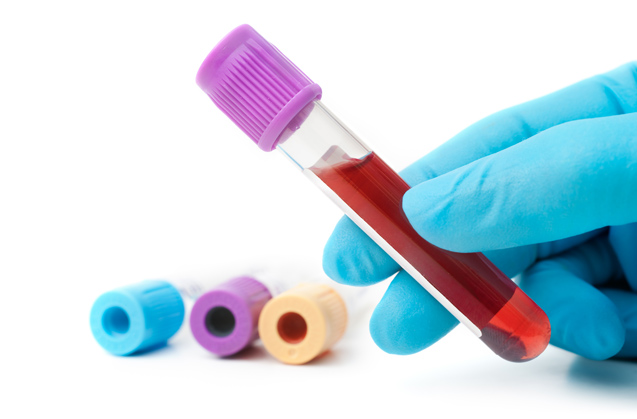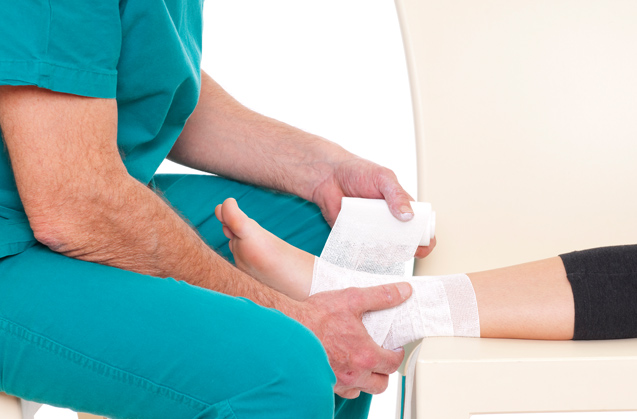By admin
29 Jul, 2021
Uncategorized
Joint pain is incredibly common, and has a higher chance of occurring as you age. It can affect any part of your body (and sometimes even affects multiple parts of your body at the same time), and can be both painful and debilitating to manage. We’ve compiled a list of some common ways that you can develop joint pain in order to help you determine what the root cause of your joint pain may be.
Aging
As we age, our bones, muscles, and joints all age and become more weak and brittle. We lose bone density, mineral and calcium content, and oftentimes become more stiff with time. This especially holds true for those who cannot maintain healthy lifestyles, and become less physically active as they grow older. This is one of many reasons why staying active is so important!
Arthritis

Mayo Clinic defines arthritis as “the swelling and tenderness of one or more of your joints.” Though it sounds simple, arthritis can be incredibly painful, and usually worsens with age. Its main symptoms are joint pain and stiffness, and there are two main kinds: osteoarthritis (which causes cartilage to break down), and Rheumatoid arthritis (which causes one’s immune system to attack the joints). Gout is also a kind of arthritis that often causes joint pain, and is described by Cleveland Clinic as “a painful condition where crystals from the body collect in the joint, causing severe pain and swelling.”
COVID-19
While not a main symptom or lasting effect of COVID-19, recent studies have found that out of about 11,946 COVID patients, 11% – 16% suffered from arthralgia, or joint pain. A study completed in 2021 by Wilton Surgery Center found that “about 50% of patients said that their muscle, bone, and joint problems have exacerbated since quarantine.” Since physical activity is often recommended to help relieve joint pain, stay-at-home orders have made it more difficult to manage COVID-related joint pain.
Obesity
Did you know that every extra pound you carry puts 4 pounds of pressure on your knees? Obesity is one of the main contributors to joint pain, and it’s no surprise as to why. By maintaining a healthy diet and maintaining a weight that’s healthy for your age and body-type, you’ll decrease the amount of pressure put on your bones, thus decreasing your chance of developing joint pain.
Tendinitis
Tendinitis (also spelled tendonitis), is cellular irritation of the tendons that does not involve the reactions of the immune system. Repeated overuse or strain of the tendons can over time lead to cellular change to the surrounding tendons and micro-tears. This can occur as a result of high-impact sports or traumatic injuries.
People over the age of 40 are more susceptible to these conditions, since over time, tendons become weaker due to stress. Arthritis, osteoarthritis, and osteoporosis can also lead to tendinitis and tendinosis. Regular exercise and stretching are essential to keep the tendons limber and strong, and in helping prevent future diseases.
Sprains and Other Injuries

There may not always be a clear-cut answer as to why one experiences joint pain. Sprains, bone breaks, and other injuries can also cause one to feel joint pain; if you’re unsure as to why you’re experiencing such pain, or have been suffering with joint pain for an extended period of time, it might be a good idea to consider seeking help from a licensed professional.
Healthpointe now offers a Regenerative Medicine program that is equipped with a multidisciplinary team of physicians and state-of-the art technology aimed at providing you with the best care possible. Our physicians can offer customized treatment plans to better fit your specific needs. Contact Healthpointe today to schedule an appointment and learn more about our Regenerative Medicine program.
About Healthpointe:
Healthpointe is a leading multidisciplinary healthcare organization offering a full range of medical services in practice locations throughout Southern California.
As a highly regarded musculoskeletal group, we have a personal investment in the highest level of service, and are proud of our record of excellence over the last four decades with private patients, injured workers, urgent care, personal injuries, and professional and non-professional athletes. Leading our organization is a dynamic team of healthcare professionals who continually strive to be at the forefront of medical innovation and healthcare service delivery.
More
By admin
06 Jul, 2014
Uncategorized
Patients now have the opportunity to receive Regenerative Medicine services at Healthpointe
Healthpointe Medical Group is proud to announce that they are offering Regenerative Medicine Services at their facilities located throughout Southern California.
Regenerative Medicine is a rapidly growing field that is aimed at restoring and/or replenishing the normal function of tissues that are damaged or otherwise affected by diseases. Through this program, Healthpointe provides simple, effective, and non-invasive Wound Care options to treat pain and various complex and non-healing wounds. This program is focused on providing patients with non-surgical approaches to treating a patient’s pain and providing state-of-the-art wound care.
Healthpointe’s multidisciplinary medical team is ready to deliver quality wound care solutions to their patients. Their doctors adhere to the motto of delivering quality care to everyone, and they do so by offering customized treatment plans to better fit patient’s specific needs.
Services under the Regenerative Medicine include:
- PalinGen Flow
- PalinGen Membrane
- Platelet-rich plasma injections
Other Wound Care Services offered at Healthpointe:
- Tissue Debridement
- Skin Grafting
- Hyperbaric Medicine
These services may also be used in conjunction with surgical procedures to augment recovery time after surgery by enhancing the patient’s healing process. Regenerative Medicine services, along with the other Wound Care Services, are also known to decrease formation of scar tissues, especially after undergoing complex surgeries.
Patients who are affected by soft tissue damage and difficult-to-heal wounds may finally find some resolution to their condition thanks to the new Regenerative Medicine services at Healthpointe. Healthpointe’s services are offered during regular business hours: Monday-Friday 9-6. For more information, contact Healthpointe at 844-887-7882
More
By admin
06 Jul, 2014
Uncategorized
What is platelet-rich plasma?
Platelet-rich plasma (PRP) injection is a new and innovative treatment that is being used for common orthopedic conditions. Your blood contains liquid called “plasma” along with small solid components such as red cells, white cells, and platelets. The platelets are beneficial in terms of healing because it contains hundreds of proteins called growth factors. Growth factors are chemicals that shoot signals to your body to initiate the healing process. By injecting the platelet-rich plasma into the areas of the injury, the goal is stimulate and optimize the ability of your body to heal chronic orthopedic conditions.
What conditions are treated with platelet-rich plasma?
- Surgery: PRP treatment has been used in operating rooms to help with wound healing, and to stimulate bone formation in spinal fusion surgery.
- Knee arthritis: Some research has shown that PRP may be beneficial to treat knee arthritis.
- Fractures: PRP may assist patients to speed the healing process of their fractured/broken bones.
- Acute Ligament and Muscle Injuries: PRP has been used to treat professional athletes with common sports injuries such as ligament and muscle injuries.
- Chronic Tendon Injuries: PRP has been shown to be most effective in the treatment of chronic tendon injuries, such as tennis elbow, chronic Achilles tendonitis, or jumper’s knee.
Where can I receive platelet-rich plasma treatment?
Healthpointe now offers a Regenerative Medicine program that is equipped with a multidisciplinary team of physicians and state-of-the art technology aimed at providing you with the best care possible. Our physicians can offer customized treatment plans to better fit your specific needs. Contact Healthpointe today to schedule an appointment and learn more about our Regenerative Medicine program.
More
By admin
04 Jul, 2013
Uncategorized
What is a diabetic foot ulcer?
A diabetic foot ulcer is an open sore or wound that occurs in individuals with diabetes; it is typically located on the bottom of the foot.
Some statistics involving diabetic foot ulcers include:
- 15% of people with diabetes develop a foot ulcer
- % of people who develop a foot ulcer will be hospitalized due to an infection or other ulcer-related complication
- 14% – 24% of people who develop a foot ulcer will require an amputation
What causes diabetic foot ulcers?
Anyone who has diabetes is in jeopardy of developing a foot ulcer. People with diabetes are also at risk for complications from wound healing due to multiple factors including:
- Slower healing injuries due to decreased blood flow
- Not acknowledging injuries due to neuropathy (reduced sensation in their hands or feet).
What are the symptoms of diabetic foot ulcers?
Often times, people with diabetes have lost their ability to feel pain. Thus, pain is not a common symptom for them. Although it sounds good, it is actually dangerous as you will not be able to notice abnormalities as you normally would. Some symptoms to be cautious about include drainage from your socks, redness, swelling, and odors. If you are a diabetic, it is important to take good care of your feet, and check them every day.
What are the treatment options for diabetic foot ulcers?
The primary goal in the treatment of diabetic foot ulcers is to facilitate healing as soon as possible. Some treatment options include:
- Preventing the infection in the first place
- Taking the pressure of the area (off-loading)
- Removing dead skin and tissue (debridement)
- Applying medication or dressings to the ulcer
- Managing blood glucose and other health problems
When should I seek medical treatment for my diabetic foot ulcer?
As soon as you notice a foot ulcer, it is important to seek immediate medical attention. Foot ulcers in diabetic individuals should be treated immediately to reduce the risk of infection and amputation.
Healthpointe now offers a Regenerative Medicine Program that provides effective and non-invasive wound care options to treat complex problems and non-healing wounds. Call Healthpointe today to receive immediate medical attention for your diabetic ulcer issues.
More






